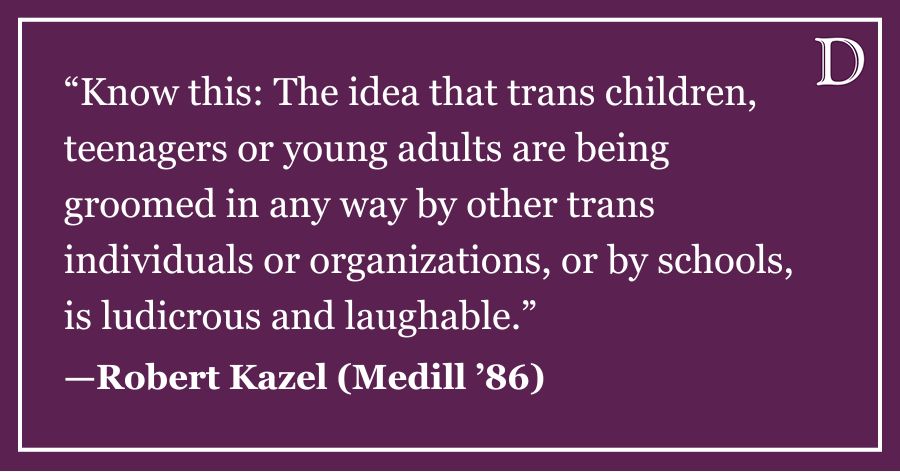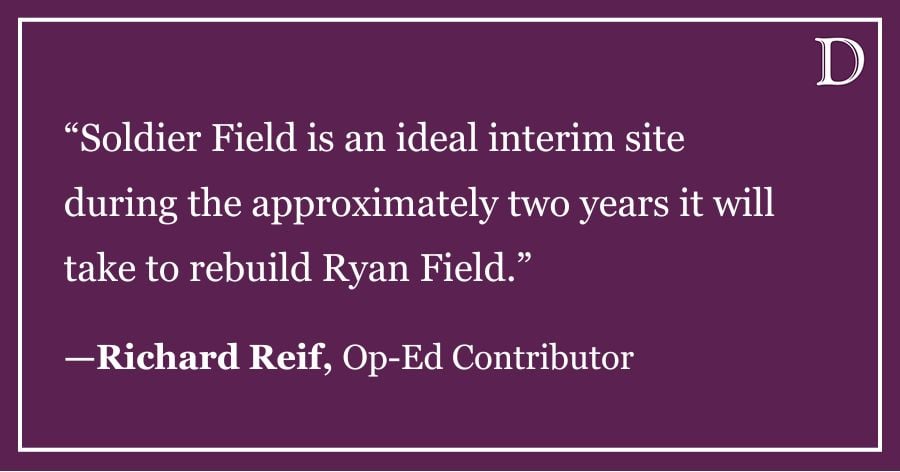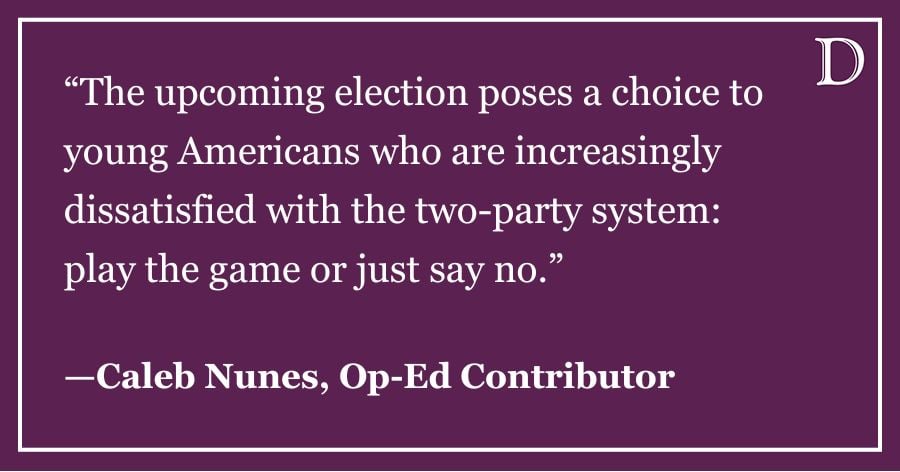The surprise announcement that basketball player James Montgomery III received a full-ride scholarship this week rightly made headlines and ESPN SportsCenter. But the real story is not the scholarship itself, but the cost of attending Northwestern that is out of reach for many and heading in that direction.
Tuition at NU has risen steeply in the past few years, reflecting a broader trend in higher education to charge what you can get away with. Recent Nobel laureates in economics have investigated asset bubbles and mispricing. Although their work applies to the housing market, it can caution higher education administrators who are intent on the current warpath. The music will stop, parents will balk at the tuition hikes and NU might find itself in a risky financial position.
Let’s look at the numbers. The cost to take classes at NU for full-time students is $15,040 per quarter. That comes out to $45,120 for three quarters. Fall Quarter 2010, my first at NU, cost about $13,000. In three years, the price has increased 16 percent on an unadjusted basis. In the meantime, the consumer price index has risen by about 6 percent from September 2010 to September 2013. Clearly 16 percent is greater than 6 percent, meaning NU tuition has outpaced the inflation rate over that same period.
Ignoring separate hikes in fees, such as the study abroad fee, this spike ought to give pause to students. Economics tells us to consume when the benefit exceeds the cost of the good or service. The benefit of an NU degree could be measured in lifetime earnings or utility from education. But it makes you wonder how either of these metrics — or any other conceivable one — could have risen so sharply in only three years. We have a better football team than when I joined, a more Emmy-winning school and even a more scandalous institution. But I do not see an increase in value corresponding to more tuition dollars and cents. What’s missing here?
I researched allocation of research funds to U.K. universities with economics Prof. Burton Weisbrod and found that universities behaved in rational ways. They learned how moneys were distributed and adjusted their behavior to keep research dollars flowing. Expanding this example, I believe that U.S. schools have a similar incentive to grow all revenue whatever its source.
We know that the endowment, ably run by William McLean, funds the University and not the other way around. So revenue for the University is increasing from both tuition and the endowment-university payout, rising from 4.7 percent in 2012 to 5.1 percent in 2013. And since the University is a not-for-profit institution, costs must rise proportionally.
So we arrive at the crux of the issue: spending. The University costs more because the University has larger outlays — renovating dorms, providing scholarships, funding research. The school’s annual budget has ballooned from $1.5 billion to $1.9 billion from 2010 to 2014. More than $350 million of this increase funds “other” expenditures, a category not listed in 2010. NU might want to explain the purpose of nearly a sixth of our budget. Eventually, as we learned with the housing market and even the 17th-century Tulipmania in in the Netherlands, prices suddenly and irreversibly reach a breaking point. People simply push back.
No one can reasonably say where the tipping point lies. But with no end in sight for our spending spree, the day of reckoning will come. When the cost of a quarter at NU passes $20,000 (and it will), who will stand up and question the madness? Higher education is a special good, a superior good in every sense, but it does not have to be a luxury good. Administrators ought to look in the mirror and do a sanity check before it is too late.
William McLaughlin is a Weinberg senior. He can be reached at [email protected]. If you want to respond publicly to this column, send a Letter to the Editor to [email protected].














